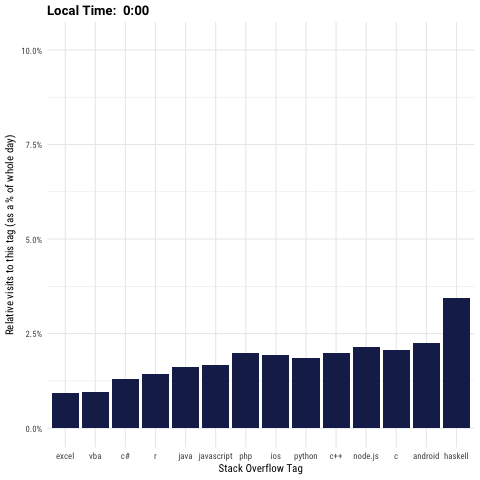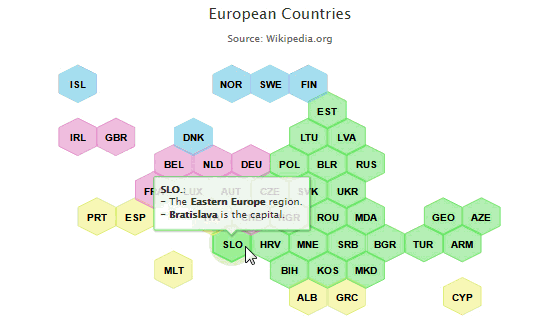Can being spied on be for our own good?
Will Google soon control the ad-tech industry? Are Bose headphone spying on users? How do data silos hinder greater market success? Can math light up our brains the same way as art? Will a robot take your job in the next twenty years?
--
UK PM Theresa May announced a snap general election. Encouraging to see the peak of young people registering to vote – on Tuesday, 109.3k out of the 150k people who registered to vote were aged under 25. ✅
Tony Porter, the UK government’s surveillance camera commissioner, warned that facial recognition technology combined with “data mining” of personal details meant there would “soon be very little that could be kept secret about a person’s lifestyle”. Worrying. 🔍
Can being spied on really be for our own good? 🙃 WORTHWHILE read discussing a new factsheet by the NSA and FBI which “has laid bare ludicrous contradictions in how US intelligence agencies choose to interpret a law designed to prevent spying on American citizens, but which they use to achieve exactly that end”. Most notably - justification on querying a database with personally identifiable information (PII) to identify evidence of a crime. 😳
Princeton and Stanford researchers have fundamentally reinvented how ad-blocking works using computer vision. Nice! 👍 Also - Google are supposedly planning to add an ad blocker to all versions of Chrome Web browser. Very interesting move. 🤔 Will this give Google control over the ad industry? – Definitely one to watch. 💭
Are Bose headphone spying on users? A lawsuit alleges that the Bose Connect app collects and sends private data to third-party data mining companies - WITHOUT users’ consent. The complaint argues that the music, radio programs, and podcasts people listen to “reveal sensitive information about themselves that suggests their politics, religious views, thoughts, sentiments, and emotions”. ⛔
Virtual assistants know and hear everything but lack security guards:
Siri can know the shows users are watching, the songs they’re playing, who they’re calling, and perhaps also the content of text messages, MMS, even the fact that certain photos were uploaded and attached to messages, and so forth.
Tom Henderson argues that there is no way tech giants aren’t using this information for “immense amounts of big data-style analytics”. – Side note: This comes following Burger King releasing an advert designed to activate any Google Home device to read the Wikipedia definition of a Whopper. 😆
Google are looking for 10,000 volunteers to take part in a four year study searching for clues to predicting heart disease and cancer. 💉 The organisers refused to provide a copy of the consent form participants will sign: “leaving it unclear what will be asked of them, exactly how their data might be used and protected, or how commercial conflicts of interest are described”. 🤔 – However, the consent form for registering interest includes information that volunteers’ data may be anonymised and sold - for example to pharmaceutical companies. Check out Google’s health spinout Verily’s new website for more info. 🏥
Interesting article on the importance of customer data integration across different departments - as data silos may be hindering greater market success:
Overcoming the obstacle of data fragmentation and customer data silos requires the creation of a true customer profile. This involves tearing down silos and developing a comprehensive profile of each customer that can be updated in real time. The data is compiled from all the sources used for data collection, making sure that the information doesn’t become segmented and the sole property of certain departments. This means going beyond customer relationship management software and actually utilising sources from outside the business as well.
Also: Report outlining how the integration of emergency medical services data can optimise patient care. Emergency services need access to patient history in order to make informed decisions in crucial moments. Read the full report here.
Miscellaneous
Can math make our brains light up the same way art and music do? 💞
INSIGHTFUL Ted Talk by Giorgia Lupi on how we can find ourselves in data - especially worthwhile if you haven’t of data humanisation.
Summary of Things posted a list of links to all the things Google knows about you. 🕵
Nice visualisations of USA facts – using federal, state and local data from over 70 government sources. Worthwhile browse.
Will a robot take your job in the next twenty years? 🤖
WATCH: All-electric ‘flying car’ taking it’s first test flight.
What programming languages are used late at night? 🌚 Interesting analysis using tags searched on StackOverflow + nice viz below:
Programming languages used late at night, via StackOverflow














